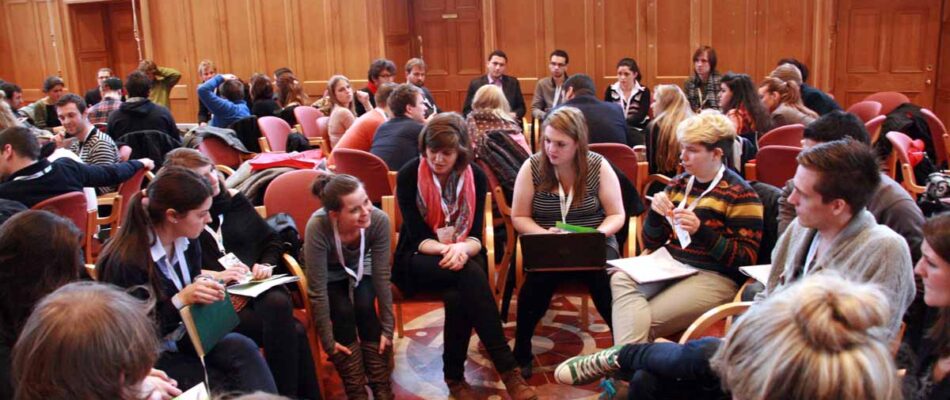
Europe needs to take action on the social dimension
DUBLIN – European students call for a clear message from the Council of the European Union on the social dimension of higher education. A first draft of council’s conclusions on the issue will be debated at a meeting of the council’s education committee meeting this Wednesday.
One of the major concerns raised at the 25th European Students’ Convention, held in Dublin from 7 to 11 March, was the lack of concrete action plans to improve access for underrepresented groups of the society despite countries’ commitment to the Bologna process and explicit references there of how the diversity within each society should be reflected in higher education systems.
Comprehensive approach missing
Therefore synergies with regards to reinforcing widening access policies are needed and it is necessary for the European Union to step in to encourage its Member States to adopt on the national level specific measures to target underrepresented groups.
“There is a lack of a comprehensive approach at the national level when dealing with access policies. Countries should put more effort into identifying underrepresented groups and developing measurable action plans and policies to increase participation in higher education. However, not only access, but also support for completion should be looked into,” says Karina Ufert, Chairperson of the European Students’ Union (ESU).
One of the main worries addressed at our convention was the shortage of relevant comparable data for designing action plans and monitoring their implementation in addition to the clear lack of commitment to financing support measures for underrepresented groups such as disabled students and students with ethnic minority background.
Ireland’s higher education system transforming
The 25th European Students’ Convention was organised by ESU in close cooperation with the Union of Students in Ireland (USI). A number of experts were invited as speakers, including government officials and academics both at universities and think tanks on educational policy, which also helped to get a thorough understanding about the Irish reality.
Ireland is currently undergoing massive transformations within its higher education system. It also has a broad experience in supporting flexible learning paths, including recognition of prior learning. Irish institutions set up a good example by encouraging and supporting people with fewer opportunities to go into higher education by equipping their staff to deal with social diversity on campus. It is however foreseen, that the economic crisis and budget cuts in education could put in danger many good initiatives.
“Putting the social dimension in higher education into practice can be achieved through sound cooperation among various stakeholder groups, such as higher education institutions, social outreach organisations and student unions. It is important however, that widening access gets high on the political agenda. We need to make sure that everyone has access to higher education and better quality of life regardless of their background,” Ufert says.
— END —
For more information, please contact:
Karina Ufert, ESU Chairperson: +32/473.669.892 // karina@esu-online.org or Robert Hlynur Baldursson, ESU Communications Manager: +32/473.669.894 // robert@esu-online.org

The European Students’ Union, headquartered in Brussels, is the umbrella organisation of 47 national unions of students from 39 European countries. ESU represents and promotes the educational, social, economical and cultural interests of students at the European level. Through its member unions, ESU represents over 11 million students in Europe. To find out more about ESU, follow us on Twitter @ESUtwt, check out or Facebook page or visit www.esu-online.org. ESU celebrates its 30th anniversary in 2012.
